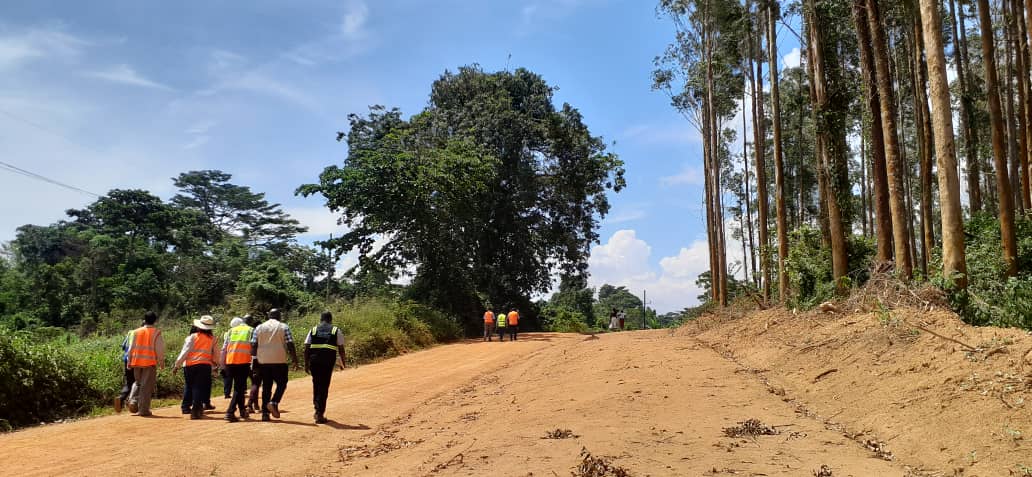Construction of the World Bank–funded 18-kilometre Ntenjeru–Bule Road has stalled after a dispute arose over a sacred tree in Mpata Village, Mpata Subcounty, Mukono District. The tree, known as Namuzikiza, belongs to the Lugave (Pangolin) clan and is regarded as a cultural site.
Clan leaders are demanding Shs 650 million in compensation before the tree and other cultural sites can be relocated to allow road works to proceed.
According to Masiko Mulo the care taker from Lugave clan says the road project also affects three sacred wells where they believe ancestral goddesses reside, Nakagga, Namagulu, and Mpakanya, each requiring cultural ceremonies before any construction can pass through.
During an inspection led by Mukono District Chief Administrative Officer (CAO) Henry Damba, China Railway 5 Engineering Group’s senior sociologist Martha Rwaboona confirmed that construction activities had been suspended in the contested section of the road.
Rwaboona said clan members refused access to the area because the contractor had not completed cultural consultations and rituals required to handle the sacred sites. She added that the contractor had reached its limit and was now awaiting the district’s intervention.
Chairperson of traditional healers in Mukono district, Moses Male Byekwaaso, warned district officials not to downplay the matter, saying failure to respect the sacred place could result in “future consequences,” including an increase in accidents along the road.
Meanwhile the call by the traditional healers was contested by religious leaders who were on the touring team saying that’s is a wastage of money and they advocated for divine intervention.
The District Engineer Herbert Lutwaama acknowledged that the situation has left district officials uncertain; noting that the Shs 650 million demanded for relocation was not included in the road’s construction budget.
Lutwaama suggested that instead of high compensation, a simpler and culturally acceptable solution such as sacrificing a bull could be discussed. He added that the World Bank, as the project funder, supports preservation of cultural heritage, making it necessary for the district to negotiate respectfully with the affected family.
CAO Henry Damba described the spiritual concerns as “one of the biggest challenges” facing the project. As a Muganda, he acknowledged the importance of cultural rituals but argued that the Shs 650 million compensation demand was excessive.
“That money can construct several roads in the district,” Damba said, adding that the district remains committed to dialogue to ensure the matter is resolved.
The Ntenjeru–Bule Road upgrade falls under the Greater Kampala Metropolitan Area Urban Development Programme (GKMA-UDP), funded by the World Bank. The road site was officially handed over to China Railway 5 Engineering Group on 9 July 2025, and construction had been progressing smoothly until the cultural dispute emerged.


